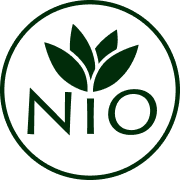Is there such thing as a tea that tastes like coffee? 🍵☕️
In this article, we are going to explore a few different types of teas that can have a very similar flavor to that of coffee.
We’ll also go through a list of teas that are high in caffeine so that we can find the best tea to substitute coffee.
Let's get started 👇
4 types of Tea that tastes like coffee
#1 Kuki Hojicha

If you are looking for a tea that tastes like coffee, you can't get any better than the kuki hojicha. This is a dark roasted stem tea made by Mr. Issin in Takachiho.
After the roasting process is complete, the tea takes on much warmer and darker flavor profiles such as dark chocolate and black coffee.
Although this is a tea that tastes like coffee, the caffeine content is a different story.
The kuki hojicha has the lowest caffeine content of any of our teas, due to the fact that it is made mostly from stems and it is a roasted tea.
#2 Hojicha Noike

The hojicha noike is another great tea that tastes like coffee.
Compared to the kuki hojicha, this tea is on the sweeter side, with notes of caramel and milk coffee.
The Noike hojicha was made by Mr. Noike, just outside of Kyoto. He grows tea on a small field in the middle of a pine forest.
Because the field is surrounded by tall pine trees, it receives partial shading throughout the day, which makes the teas slightly sweeter.
The noike hojicha is the most popular hojicha tea on our website and you are sure to love it, it is one of the best tea for coffee drinkers.
#3 Hojicha Kawabataen

The hojicha kawabataen is the final hojicha on our list. Hojicha is probably the best example of a tea that tastes like coffee, so you really can’t go wrong with any of these three.
The Kawabataen takes on a slightly more mild and woody taste characteristic.
The roast is somewhere in between the kuki hojicha and the noike hojicha. It is not quite as sweet as the noike but it still doesn’t have quite as heavy of a roast compared to the kuki hojicha.
Along with the other types of hojicha on this list, the kawabataen is the best tea for coffee drinkers.
#4 Genmaicha Hagiricha

Finally on our list of tea that tastes like coffee we have the Genmaicha hagiricha.
This tea is not quite roasted like the others, but it does contain pieces of roasted rice that give it that nice warm cereal flavor.
This tea is made by combining unroasted tea leaves with roasted rice, and the flavors of each work great together.
Genmaicha has a low caffeine content and a pleasant flavor of popcorn or cereal.
This is a great tea to enjoy in the morning if you are trying to cut back on caffeine or in the afternoon if you are having trouble sleeping at night.
Other than hojicha, genmaicha is the best tea for coffee drinkers.
What are the best tea types for coffee drinkers?

#1 Kuki Hojicha
Kuki hojicha is really the perfect tea for coffee drinkers.
When you combine the dark roasted flavors and the low caffeine content, you get the perfect replacement for your morning cuppa!

#2 Hojicha
Hojicha in general is a good tea for coffee drinkers.
While most green teas tend to have these more grassy or vegetal flavor profiles, hojicha leans much more heavily on these warmer notes of caramel, chocolate and yes, coffee.

#3 Genmaicha
Genmaicha can be a good tea for coffee drinkers because it also has a low caffeine content and more of these roasted cereal flavors that can be really warming in the morning.

#4 Ceremonial Matcha
Because ceremonial matcha is so high in caffeine, it can be a great tea for coffee drinkers that need a caffeine replacement.
Just mix 4 grams of matcha powder into some water and you have a tea with more caffeine than coffee!

#5 Gyokuro
Gyokuro is another good high caffeine tea for coffee drinkers.
One strong cup can have as much caffeine as coffee, but without all the side effects like the jitters, crash or nervousness. The taste is much smoother as well!
What is the best caffeinated tea to replace coffee?
If you are looking for a tea to replace coffee, you can find many great options that are high in caffeine. In this next section, we are going to lay out 5 different teas you can enjoy in the morning instead of your cup of coffee.
#1 Matcha
Matcha is probably the best tea to replace coffee, because it can be very high in caffeine. A regular serving of ceremonial matcha tea can have around 68mg of caffeine. While this may not seem like much compared to a strong cup of coffee, this is only using 2 grams of matcha powder. If you really want to increase the amount of caffeine in your cup of matcha, you can just mix in double the amount of powder. this will make the flavor much richer and more concentrated, but also up the caffeine content to 138mg per serving. If you use a higher ratio of powder to water, matcha can even have more caffeine than coffee making it the best tea to substitute coffee
#2 Gyokuro
Another good tea to replace coffee is Gyokuro. A typical cup of coffee has between 95-105mg of caffeine. Compare this to a serving of gyokuro tea that can have between 120-140mg of caffeine per cup. Even though gyokuro has more caffeine than coffee, you won’t feel the same effects. Instead of getting a rapid jolt of energy and a crash later on in the day, gyokuro drinkers report having a longer lasting calm energy throughout the day. This is likely due to the l-theanine, which can induce a calming effect on the body and slow the absorption of caffeine.
#3 Kabuse Sencha
An often forgotten about tea to replace coffee is Kabusecha. The longer a tea is shaded, the more caffeine it tends to have. While gyokuro and matcha are both shaded for 3 weeks or more prior to the harvest, a tea is considered a kabusecha or kabuse sencha if it is shaded for between 10-20 days. This means the caffeine content will be significantly higher than a normal green tea, but still it will not have as much compared to a tea like gyokuro. If you are trying to slowly cut back on caffeine, this might be a good stepping stone.
#4 Sencha
Sencha is the most common type of tea in Japan and it can be a great tea to replace coffee. Sencha is the most diverse category in the world of Japanese green tea, and depending on what flavors you like, you can find a sencha tea that fits your exact needs. If you prefer these milder, drier flavors in a tea, you can go for an unshaded sencha like the sencha isagawa. If you are a fan of these strong, steamed vegetable flavors, you can go for a deep steamed fukamushi sencha like the murasaki sencha.
#5 Kamairicha
The final tea to replace coffee is kamairicha. This is a partially roasted green tea, somewhere in between a hojicha and a sencha. The flavor profile takes on more of these nutty notes like toasted almonds and hazelnuts. This tea is relatively high in caffeine compared to teas like bancha and hojicha, but no where near as high as gyokuro. If you are coming from the world of coffee, you may see this as a bridge between the more roasted flavors and the fresher, more vegetal flavors.
What the best tea to substitute coffee?
If you are looking for the best tea for coffee drinkers, the first thing you need to ask is whether you are looking for a tea that is high in caffeine or a tea that tastes similar to coffee. Both teas exist, but they are different kinds. In this next short section, we are going to take a look at the best tea to substitute coffee with regards to both taste and caffeine.
Based on taste: Kuki Hojicha
If you are looking for the best tea to substitute coffee in terms of taste, it has to be the kuki hojicha. The flavor of this tea tastes almost exactly like black coffee. It may take a little bit of getting used to as the flavor is much thinner compared to a strongly brewed coffee, but after awhile your taste buds will change and you will look forward to enjoying this warm cup of tea before work. Kuki hojicha is the best tea for coffee drinkers when it comes to taste.
Based on caffeine level: Matcha
If you are looking for the best tea to substitute coffee in terms of caffeine, matcha is your best bet. Even though matcha has as much caffeine or even more caffeine compared to coffee, the overall feeling is much better. The l-theanine inside matcha can slow the absorption of caffeine, so rather than getting a sudden boost of energy, you will get this more sustained “calm alert” feeling throughout the day. A lot fo tea drinkers prefer this, and use matcha as their drink of choice during long periods of work and study. Matcha is the best tea for coffee drinkers when it comes to replacing caffeine.
Herbal Tea that tastes like coffee
Now that we have talked about the best tea for coffee drinkers, let’s take a minute to explore a few different types of herbal infusions. To be considered a true tea, it has to come from the tea plant, camelia sinensis. Herbal infusions like chamomile and peppermint are often referred to as teas, but they are in fact tisanes. For simplicity sake, we can refer to these as “herbal teas” and go through a list of the best herbal tea that tastes like coffee.
#1 Carob tea

Carob tea is perhaps the best herbal tea that tastes like coffee.
This herbal infusion is made from the dry ground up fruit of the carob plant, and it can have a flavor very similar to coffee or chocolate.
There are plenty of health benefits that come from this plant, and it has a long history of being used as a healthy substitute for coffee and chocolate.
You can just prepare this in some hot water, and you will end up with a warm drink that taste similar to hot cocoa or coffee.
#2 Acorns tea

Another herbal tea that tastes like coffee is acorn tea.
Acorn tea may sound like a new trend, but it has been mentioned as early as the 1800s.
Acorns can be ground up and used in different types of herbal remedies.
It can be infused into water to create an herbal tea to replace coffee.
#3 Dandelion Root tea

Dandelion root is another herbal tea that tastes like coffee.
This tisane is made by infusing dandelion roots in hot water and although the flavor is very different than that of coffee, it can be used as a replacement.
This tisane is very high in vitamin K and it is thought to be good for your bones.
#4 Chicory Root tea

A fourth herbal tea that tastes like coffee is chicory root.
Chicory tea is a popular substitute for coffee since ground chicory has a similar taste and aroma to coffee.
Both chicory tea and coffee have a warm, earthy, nutty flavor that pairs well with sweet pastries and breakfast foods.
#5 Barley tea

Barley tea is the final herbal tea that tastes like coffee. This tea is very popular in Japan where it is called “mugicha”.
The tea is often roasted and it takes on these earthier or nuttier flavors, making it a good replacement for coffee.
Like the other teas on this list, the barley tea is naturally caffeine free so it can be a nice treat to enjoy at any time throughout the day.
Best Low Caffeine Teas
The best tea for coffee drinkers that are trying to cut back on their caffeine consumption is one of these low caffeine teas. Let's take a look at the 4 basic types of low caffeine Japanese green teas, and see which ones sound good to you.
#1 Bancha
As we have mentioned before, the tea plant produces caffeine as a defense mechanism to protect itself against insects, but this is mostly a way to protect the younger more vulnerable leaves. The older leaves on the tea plant are tougher, and therefore they don’t need as much protection. As a result, a tea like bancha which is made from the older tea leaves of the plant will have around 30 mg of caffeine per cup. Bancha is another good tea for coffee drinkers trying to cut back.
#2 Kukicha
Kukicha is another good green tea with a low caffeine content. Because the leaves on the tea plant are more vulnerable to insects, the caffeine is concentrated around the leaves and not the stems. This means that teas made by combining stems and leaves are much lower in caffeine, and they can have a pleasant flavor with notes of summer grass and straw. A regular Kukicha made from unshaded tea plants will have about 18 milligrams of caffeine per cup, but a tea like Karigane, which is made from shaded tea plants, will have up to 33 milligrams of caffeine. This still makes both of these teas quite low in caffeine and definitely suitable as a replacement for coffee if you are trying to cut back.
#3 Hojicha
There are many Hojicha benefits, but being low in caffeine is one of the main one. Hojicha is a delicious roasted green tea, made by turning the dried leaves and stems of the tea plant in a large pan or in a large roasting machine. Hojicha is usually made with the older leaves and stems of the tea plant so the caffeine content is naturally lower. That being said, the leaves also lose some of their caffeine during the roasting process itself. This brings the total caffeine content down to a manageable level of around 20mg or 1/5 of a cup of coffee. The combination of the low caffeine and the similar flavor makes hojicha the best tea for coffee drinkers.
What are
#4 Genmaicha
Because the toasted rice that is added to the tea leaves doesn’t contain any caffeine and the tea itself is often made from older leaves, these teas tend to be very low in caffeine. An 8oz cup of genmaicha will contain around 18mg of caffeine. A small cup of coffee will have around 100mg of caffeine, so clearly genmaicha is on the low end of the caffeine spectrum. Because of the the more roasted flavors and the low caffeine content, genmaicha is a great tea for coffee drinkers trying to cut back on caffeine.
Reasons why tea is similar to coffee
Caffeine

First, we can start off with the most obvious similarity and that is the fact that both drinks contain caffeine. This is a large reason why the two drinks have become so popular around the world.
While some people think of coffee as the drink to wake up and tea as the drink to wind down, tea actually can have a lot more caffeine than you might think.
While many low quality teabag teas are quite low in caffeine, higher quality loose leaf teas can be quite high in caffeine.
Gyokuro is perhaps the highest tea in caffeine, with as much as 120-140mg per 8oz cup.
This is on a similar level to a cup of coffee which contains around 100mg of caffeine per 8oz cup.
You may not feel as much of a jolt from the green tea, as the l-theanine slows the absorption of the caffeine, giving you a longer lasting energy throughout the day, without the crash or jitters.
Two Main Species of Tea and Coffee Plants
The second similarity between the two has to do with the plant. Both tea and coffee come from two major plant species.
The Robusta and Arabica make up almost all of the coffee that is exported around the world and similarly, the Camelia sinensis assamica and Camelia sinensis sinensis make up almost all the the that is exported around the world.
Within these two plant species, there are hundreds of different varietals or cultivars and the same is true for the coffee plant.
Depending on the terrain, the climate and what type of tea is being produced, a farmer will choose to cultivate different plants.
Some cultivars are sweeter like the Saemidori and Asatsuyu, some have more vegetal flavors like the Yabukita and some are stronger on these savory umami notes like the Gokou.
When the Plant Reaches Maturity
The third similarity is the age that the plant reaches maturity.
Both the tea plant and the coffee plant reach their maturity at around 4 years old, meaning this is the earliest they can be harvested.
When it comes to the world of Japanese tea in particular, the similarities continue, as the peak productivity is considered to be somewhere in between 7-20 years.
After 20 years, a lot of tea plants in Japan will be rotated to make room for new ones although in China these older tea trees are considered to produce even higher quality teas.
Tea and Coffee Can be Roasted
The fourth similarity comes from the production.
While it’s common knowledge that coffee beans are roasted to produce a particular flavor, some may not know that certain tea leaves are roasted to produce roasted teas.
Hojicha, a type of roasted Japanese green tea, is a good example. Hojicha is still a green tea because the leaves are steamed after harvesting, but these green leaves quickly turn brown as they are roasted.
The color of the tea produced is this beautiful reddish brown and the flavor plays more on these warmer notes of coffee, chocolate and caramel.
Did you know that a lot of other green tea can turn out into a vibrant brown cup of tea? To learn why, read the article 👉 Why is my green tea brown?
How the drink is prepared
The final similarity comes down to the preparation or each drink. Of course, both tea and coffee are considered to be extractions.
The both use hot water to pull out certain aspects of the plant and leave some elements behind. The both control what is extracted with some type of filter.
Of course when it comes to brewing both of these drinks, the time, temperature and ratios are important. I’ll leave the coffee explanations to a coffee expert, but I can briefly go through the brewing parameters for Japanese green tea.
You want to use 5 grams of leaves and 150ml of water. The water should be more warm than hot, something in the region of 60-70 degrees celsius or 140-160 degrees Fahrenheit. You can let the leaves sit in the water uninterrupted for 1 minute and then pour them out into a cup. The clay teapot you use should have a built-in filter that prevents the leaves from getting into your cup.
Why you should replace coffee with tea?
Replacing coffee with green tea can offer a range of health benefits. Green tea is packed with unique properties that contribute to overall well-being. Here are some key advantages of making the switch:
- Rich in Antioxidants
- Calming Amino Acid (L-theanine)
- Improved Hydration
- Reduced Jitters and Anxiety
- Potential Cardiovascular Benefits
- Dental Health
So is green tea better than coffee? Yes! 🍵🆚☕️




